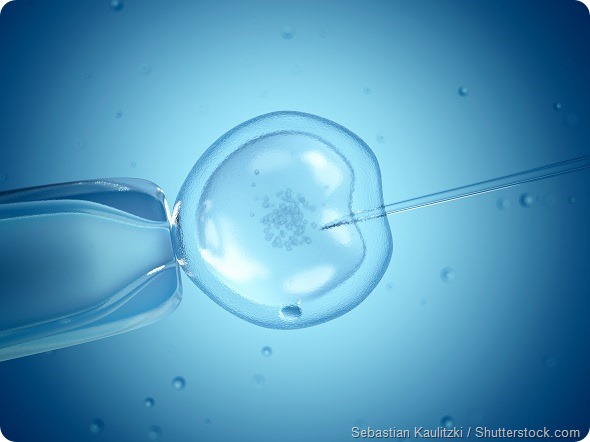Women who undergo in vitro fertilization (IVF) may be less likely to reach the stage of giving birth if the donor eggs used for the procedure are frozen rather than fresh, according to a new study published in the Journal of the American Medical Association.
"Our research demonstrated that -- contrary to some claims made mostly by commercial interests -- frozen eggs offer a lower chance of pregnancy and delivery chance after IVF than fresh eggs," says study co-author Norbert Gleicher (Center for Human Reproduction, New York).
Patients should be made aware of this fact, before making a choice," he adds.
Gleicher and colleagues examined more than 11,000 IVF procedures carried out using donor eggs in 2013 and compared the live birth and cycle cancellation rates when either frozen or fresh donor eggs were used. The figures came from the 2013 annual report of US in vitro fertilization center outcomes published by the Society for Assisted Reproductive Technology.
The team reports that 20% of the IVF procedures were carried out using frozen donor eggs. Of those procedures that resulted in embryos being transferred to the uterus, 47% resulted in a live birth. This compared with 56% resulting in live births when fresh donor eggs were used.

The authors say it is not yet clear why there are fewer live births when frozen eggs are used, although they suggest it may be that egg quality is reduced by freezing or thawing. In addition, many fewer frozen eggs are used for an IVF procedure than when fresh eggs are used.
"We don't know if fresh is better," says Lawrence Grunfeld, clinical associate professor of medicine at Icahn School of Medicine at Mount Sinai, New York.
There may be a slightly lower success rate with frozen eggs. On the other hand, the diminished success rate could be due to the lower egg numbers available."
Until recently, the eggs used for IVF would usually be fresh eggs from anonymous donors, but women often had to wait months for fresh eggs. Frozen eggs, on the other hand, can be stored which gives women access to a wider range of donors and offers them greater flexibility in terms of scheduling and coordination. President of the American Society for Reproductive Medicine, Rebecca Sokol, considers these “advantages that may outweigh slightly lower success rates for some patients.”
Grunfeld says that for now, patients should consider factors such as cost and the availability of fresh versus frozen eggs. He also thinks future studies should look at the number of eggs available via the two technologies.